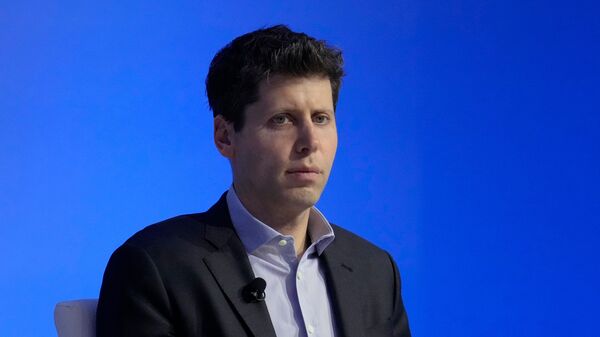Reinstatement of Sam Altman as OpenAI CEO:
The abrupt removal and subsequent reinstatement of Sam Altman as the CEO of OpenAI last week surprised the global tech community, marking the end of a period filled with uncertainty. The upheaval within OpenAI, coupled with ongoing concerns regarding deepfakes, captured significant attention. Additionally, Google introduced new enhancements for its ChatGPT competitor, Bard AI.
Sam Altman’s Return to OpenAI Leadership:
After a controversial dismissal, Sam Altman has been reinstated as the CEO of OpenAI. The board responsible for his initial removal has undergone significant changes, with only Quora CEO Adam D’Angelo retaining his position.
OpenAI released a statement on X (formerly Twitter), stating, “We have reached a preliminary agreement for Sam Altman to resume his role as CEO of OpenAI, supported by a revamped board comprising Bret Taylor (Chair), Larry Summers, and Adam D’Angelo. We are actively working together to finalize the details. We appreciate your patience throughout this process.”
Addressing Persistent WiFi Issues with iOS 17.2 Update:
The release of Apple’s iOS 17 update elicited mixed reactions from iPhone users, with many reporting various issues. A prominent concern raised by a substantial number of users revolves around the decline in WiFi speed post the iOS 17 update. Despite attempts to rectify this through subsequent updates like 17.1.1, users are still grappling with WiFi connectivity challenges.
According to a report by MacRumors, users have consistently encountered WiFi speed issues following the iOS 17 rollout. Apple is reportedly conducting internal tests for a new update, iOS 17.1.2, aimed at resolving these WiFi-related issues. The upcoming iOS 17.2 update is anticipated to not only address the prevalent WiFi issues but also introduce new features for compatible iPhones.
Government Support for Combating Deepfakes:
In the battle against deepfakes, Minister of State for Electronics and IT Rajeev Chandrasekhar announced government support for filing FIR against social media platforms. The Ministry of Electronics and Information Technology (Meity) will establish a platform for users to report IT rule violations by social media platforms.
A Rule Seven officer will oversee this platform, aiding citizens in reporting law violations by platforms to the Government of India. FIRs will be lodged against intermediaries, and if the content source is disclosed, the entity responsible for posting the content will also face legal action, as per the minister’s statement.
Upgraded Features for Google’s Bard AI:
Google is enriching its Bard AI chatbot with new functionalities, including the ability to extract information from specific YouTube videos. This updated version of Bard aims to deliver more precise and high-quality responses to user inquiries.
In a blog post outlining the YouTube extension updates, Google mentioned, “We are introducing features that enable Bard to comprehend YouTube videos better. For instance, if you are searching for tutorials on making olive oil cake, you can now inquire about the number of eggs required in the first video.”
In response to user feedback for enhanced engagement with YouTube content, Google expanded the YouTube Extension to bolster Bard’s comprehension of video content, facilitating more profound discussions on the subject.
Google’s Confidential Agreement with Spotify:
During the Epic vs. Google antitrust trial in San Francisco, it came to light that Spotify does not pay Google any commission when users subscribe via Spotify’s payment system on Android. However, if Google processes the payment, a 4% commission is levied, significantly lower than the standard 15% in-app subscription fee. This undisclosed agreement was disclosed during the trial, underscoring Google’s efforts to maintain privacy due to potential implications on negotiations with other app developers seeking similar advantageous terms.






